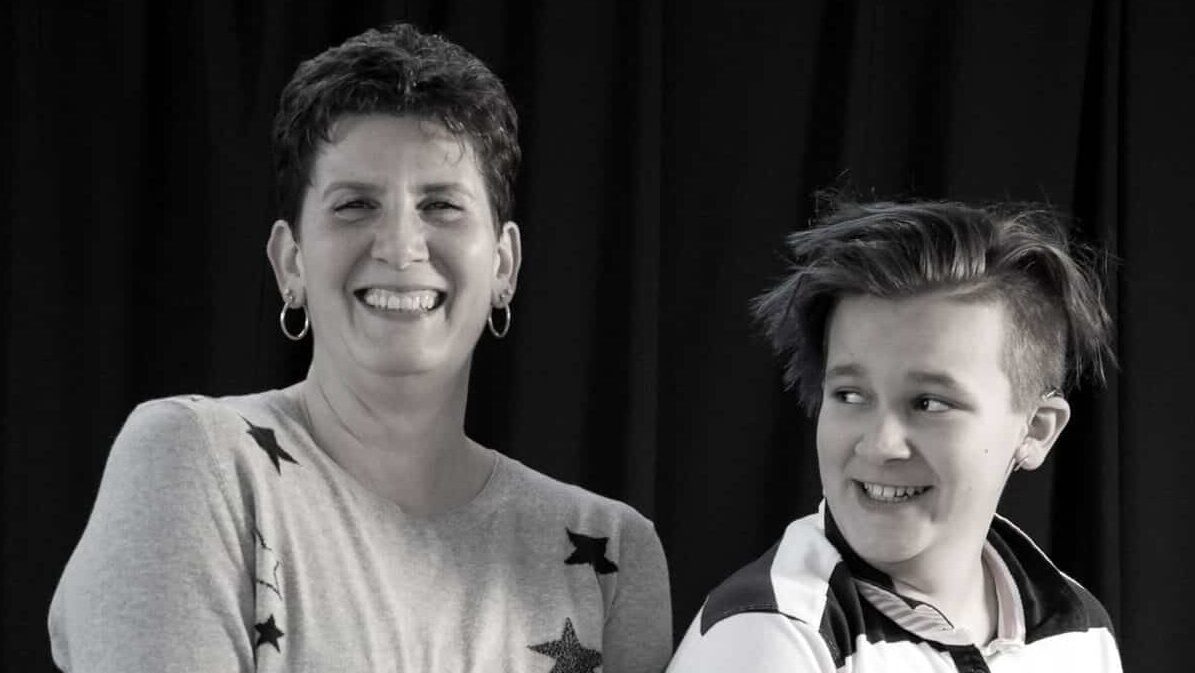This has shaped the course of my life
Cate Dunn grew up in a farming community in the Wimmera. As a pre-schooler, Cate would regularly set off with her mum in the early hours of the morning to drive to a Melbourne based Early Intervention program. Her parents were determined to give her every opportunity they could and those resources just weren’t available locally.
“Many of us are isolated in hearing environments”
Cate grew up in rural Victoria and struggled to access vital supports. “I’ve been profoundly deaf since birth and have lived in a country town most of my life. Growing up in a hearing family and community has had its challenges and mine were best case scenarios compared to the reality of the majority of young deaf people in rural and remote areas.
I remember when I was a little six-year-old saying in my loud and proud voice that I was deaf. I got some extra praise for my confidence but as I got older, I noticed that the reactions were instead condescending looks, offering me sympathy. I was taken aback. I didn’t understand why it was such a big deal, I was just deaf. As I grew up, I would soon begin to question what exactly that meant and question my confidence.
During that same time, I started to realise I was behind in conversations. I could see the lips of the people around me moving as they smiled and gestured to one another and I could hear noises in the background. I had good friends and family who wanted to support me and could see that I was lost, but when they asked, ‘what did you miss, what do you want us to repeat?’ I didn’t know how to answer. I hadn’t heard what I had missed.
I, along with the vast majority of young deaf people, face this challenge. Some of us are fitted with hearing aids or cochlear implants, yet are still isolated in hearing environments.
For me, personally, I hated getting new hearing aids because not only did it create more pressure to fit into a hearing environment, but hearing unfamiliar sounds in my day to day life was like stepping into a parallel universe.
I felt like I didn’t know the world around me, it was lonely. Being in a rural area, I didn’t have any deaf role models and was unable to be reassured that it was actually okay to be deaf in a hearing world, we just needed to learn how to adapt.”
Cate’s experience growing up inspired her brother, Tom Dunn to fundraise for DCA. You can watch Cate’s interview on her brothers trip here.


“Finding Inspiration”
“Deaf Children Australia has helped me at many different stages of my life. One of these was the Deaf camps with other people just like me who reassured me that I wasn’t the only one. I met so many other positive kids, mentors and leaders who have left me forever grateful for their inspiration and encouragement – which has shaped the person I am today. Through countless programs, events and workshops, I’ve been able to connect with others and meet positive role models – which is essential for all children and something that I was missing.”
“Youth Parliament shaped the course of my life”
“Youth Parliament is an experience that will be ingrained within me and cherished forever. It was a chance to represent the Deaf community, and a chance to advocate for equity and access. It was also a week filled with personal inspiration and the forming of bonds that I’ll always remember.”
“With Deaf Children Australia’s support, all Youth Parliament leaders and participants underwent a Deaf Awareness program,
and DCA arranged interpreters and captioning funded by the Department of Health and Human Services.
I was absolutely amazed at the amount of support that came from Victorian Parliamentary members and the public. I was so happily surprised to see my Mum’s face along with fellow Deaf community members supporting the Public Transport Accessibility Bill that my Deafhood team had put forward – which has now been passed.
Previously, I had a lot of frustration disguised as passion. I feel like I’ve resolved this, and revitalised my true passion. This has shaped the course of my life in the way that I aspire to advocate for equality and access through awareness and self-empowerment.”



